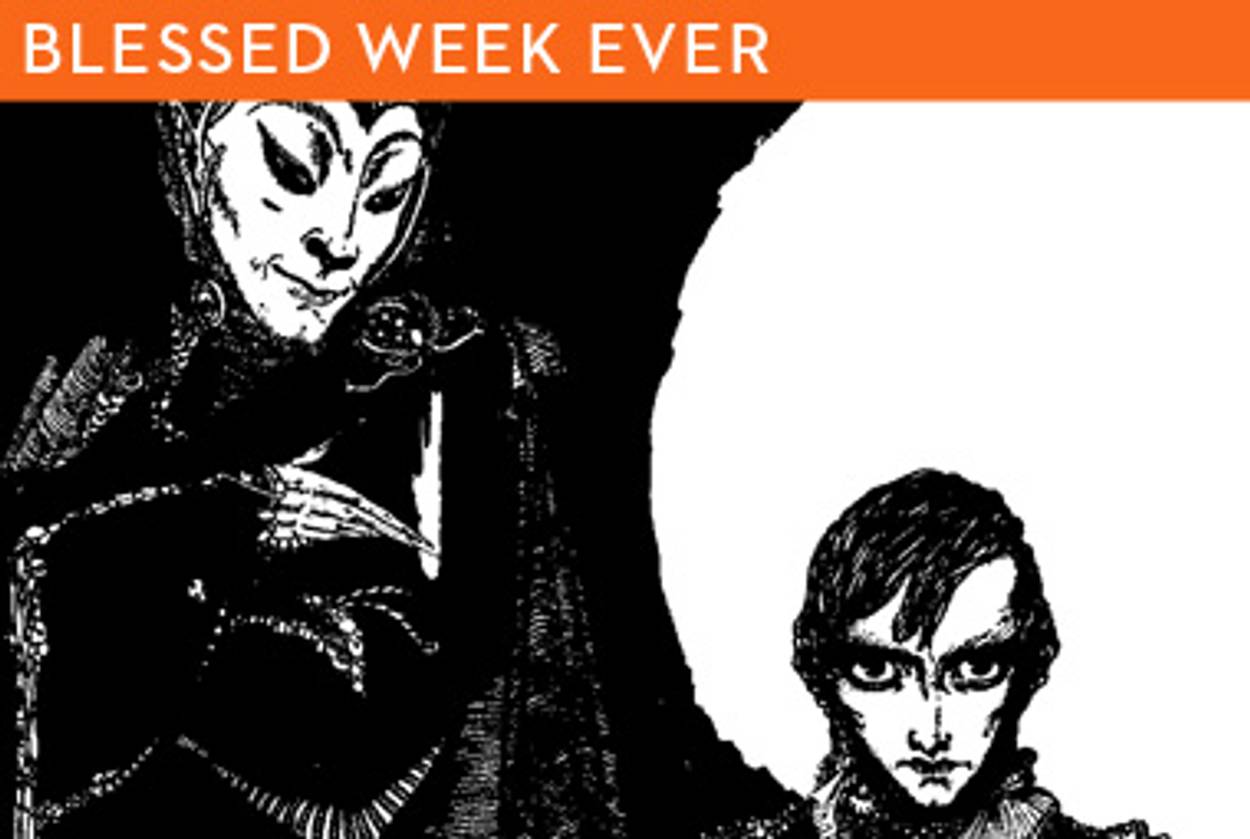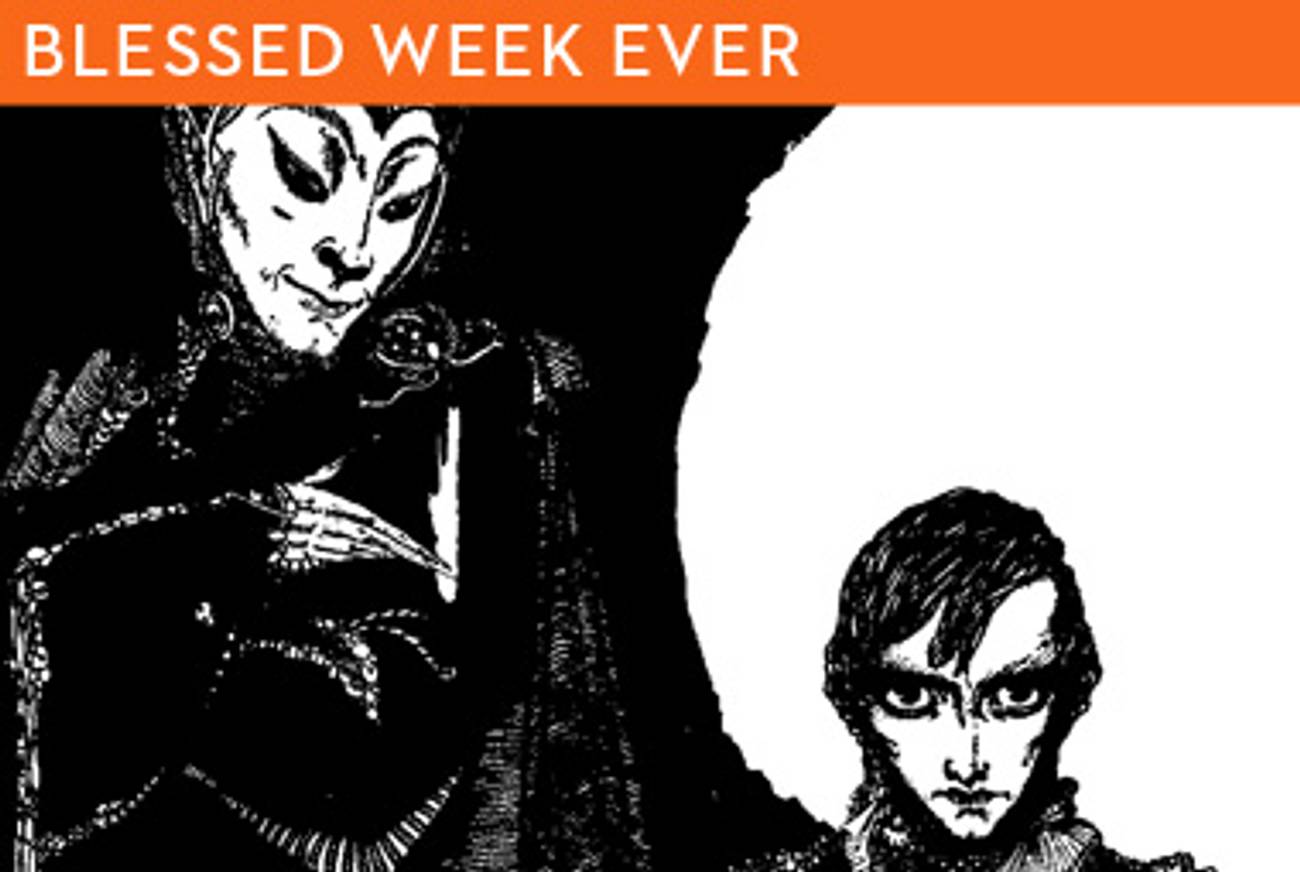Acting Out
A haftorah of misgivings and misplaced trust




Unsurprisingly, perhaps, for someone whose job it is to illuminate the ancient verses of the Hebrew prophets each week, I spend much of my time enraged.
I’d like to think that the many targets of my ire—Israel’s cruel and senseless immigration policy, Republican lawmakers who lie and obfuscate, mirthless moralists who refuse to partake in cheerful gossip—are deserving. But I’d be no better than the ninnies whose missteps I’m paid to decry if I failed to look at the mirror and find a big, fat target there, ready for scrutiny, inviting heat.
Here goes.
In this week’s haftorah, Jeremiah reveals the key to a fulfilling life. “So says the Lord,” he proclaims, “Cursed is the man who trusts in man and makes flesh his arm, and whose heart turns away from the Lord. He shall be like a lone tree in the plain, and will not see when good comes, and will dwell on parched land in the desert, on salt-sodden soil that is not habitable.”
I, dear reader, am very much a man who trusts in man, and my deep belief in everything related to flesh and arms accounts for the National Rifle Association lifetime membership card I carry proudly in my wallet. But before this week, I never thought of myself as a lone tree, nor of my comfortable apartment on Manhattan’s Upper West Side as salt-sodden, one recent plumbing crisis notwithstanding. Am I, to put it plainly, doomed?
Like all of life’s worthwhile questions, this one is difficult to resolve, but any attempt at an answer must begin with absolute candor. Like most Israelis, I, too, was reared on the theology of Do-It-Yourself, a deep-seated faith that can scream out, say, against the travesty of Jewish settlements in the West Bank even as it sometimes can’t help but admire the temerity of establishing facts on the ground. And if I ever start a religion of my own—and what entrepreneurial chap hasn’t given this, the ultimate revenue stream, a lick of thought?—it’ll be called GOI, an acronym for Get Over It. Services will be short: adherents will walk in and tell me their problems, and I’ll smack them as hard as I can and suggest that they stop whining and take charge. As my liturgy, I’ll offer Faust’s cri de coeur:
‘In the beginning was the Word’: why, now
I’m stuck already! I must change that; how?
Is then ‘the word’ so great and high a thing?
There is some other rendering,
Which with the spirit’s guidance I must find.
We read: ‘In the beginning was the Mind.’
Before you write this first phrase, think again;
Good sense eludes the overhasty pen.
Does ‘mind’ set worlds on their creative course?
It means: ‘In the beginning was the Force.’
So it should be—but as I write this too,
Some instinct warns me that it will not do.
The spirit speaks! I see how it must read,
And boldly write: ‘In the beginning was the Deed!’
Jeremiah, one suspects, would be none too pleased. By definition, we consecrators of the Deed have no choice but to trust ourselves first, others second, and any additional forces—divine or otherwise—thereafter. Are we heretics? And, conversely, are those who are faithful but inert blessed? I have always refused to believe that was the case. When I was growing up in Israel during the first Gulf War, some prominent rabbis distributed little books of psalms with the catchy title tehilim neged tillim, or psalms against rockets. It made me laugh: King David’s ancient poetry of devotion was lovely, I thought, but if you wanted to stop rockets you might want to try bigger rockets instead.
And yet, Jeremiah wasn’t entirely wrong. He’s well aware that a thin line separates self-reliance and arrogance and that those who trust in man may speed past independence and dart all the way down to delusion. This is what happened to Jeremiah’s Israelites, and it’s what happens to so many of us, states and individuals alike. Capable of acting, we come to believe that our actions are the only forces that shape our world. Possessing of power, we come to see power as a sine qua non.
Or, at the very least, I do, and I struggle not to let the demons of the Deed drive me far away from the spirit of the Lord. I have many wise counselors, thinkers who caution me that power yielded for its own sake is a dark thing and that a life is worth living when we’re graceful enough to strike a balance between the deed and the word, between power and piety, between what we’re capable of doing and what we choose to do.
Martin Buber is one such guide. Eulogizing the anarchist philosopher Gustav Landauer—stoned to death by right-wing goons in Munich in 1919—Buber wrote the following words: “Gustav Landauer fought in the revolution against the revolution for the sake of the revolution. The revolution will not thank him for it. But those will thank him for it who have fought as he fought and perhaps some day those will thank him for whose sake he fought.” Amen to that.
Liel Leibovitz is a senior writer for Tablet Magazine and a host of the Unorthodox podcast.
Liel Leibovitz is editor-at-large for Tablet Magazine and a host of its weekly culture podcast Unorthodox and daily Talmud podcast Take One. He is the editor of Zionism: The Tablet Guide.